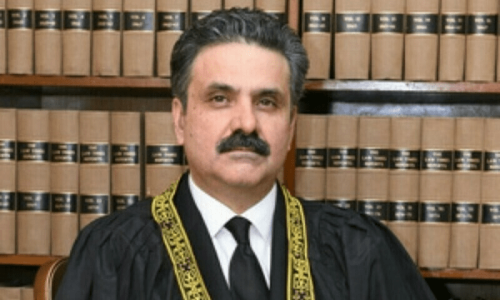EIGHT more people belonging to the Hazara Shia community were killed in Quetta on April 14 as the targeted killing of the ethnic community has unfortunately become a routine in the provincial capital.
These targeted killings indicate a great failure of law-enforcement agencies in Balochistan. Every time after completing their nefarious design the militants have been able to walk away freely and the perpetrators of such organised crime remain untouched.
Human rights groups have urged Pakistani security forces to take action against extremist sectarian outfits which have once again targeted Hazara Shia Muslims killing eight more people.
Human Rights Watch says that from 2008 to 2011 at least 275 Shias, mostly from the Hazara community, have been killed in Balochistan province, while these killings are still continued.
Human Rights Watch has reported that Pakistani and international human rights organisations, including HRW, have made numerous calls to Pakistan’s authorities to hold those responsible for the attacks to account. While authorities claim to have arrested dozens of suspects, no one has been charged in these attacks.
The Asian Human Rights Commission (AHRC) has reported that “together with the red tape, endemic to the bureaucracy, the delays in justice delivery and the ban on political activity created a vacuum in which the Islamic militant groups found it easy to run their terror activities”.
The Asian Human Rights Commission has urged that the government must immediately avail itself of all possible efforts to bring the perpetrators of targeted killings of innocent Shias to book. The government must probe the links between the banned militant organisations and the establishment.
The AHRC has also urged the government to ensure the security of the survivors, family members and relatives of those who were killed in the targeted killings and immediately pay compensation and rehabilitate them.
Amnesty International’s Asia-Pacific director Sam Zarifi said: “These are not random killings but demonstrate the deliberate targeting of the Shia by armed groups.”
He added that “recent attacks have predominantly targeted unarmed Shia Muslims in their homes, shops or while travelling, and even in their places of worship.”
Amnesty International has also reported that Lashkar-i-Jhangvi, a banned militant organisation, is operating openly in Punjab and striking their victims at will in Balochistan and other parts of the country.
Human Rights Watch has also mentioned that Laskar-i-Jhangvi operates with impunity even in areas where state authority is well-established, such as Punjab and Karachi.
Human Rights Watch has urged the Pakistan government to direct the military and the Frontier Corps to protect those facing attacks from extremist groups.
IRFAN HUSSAIN London










































